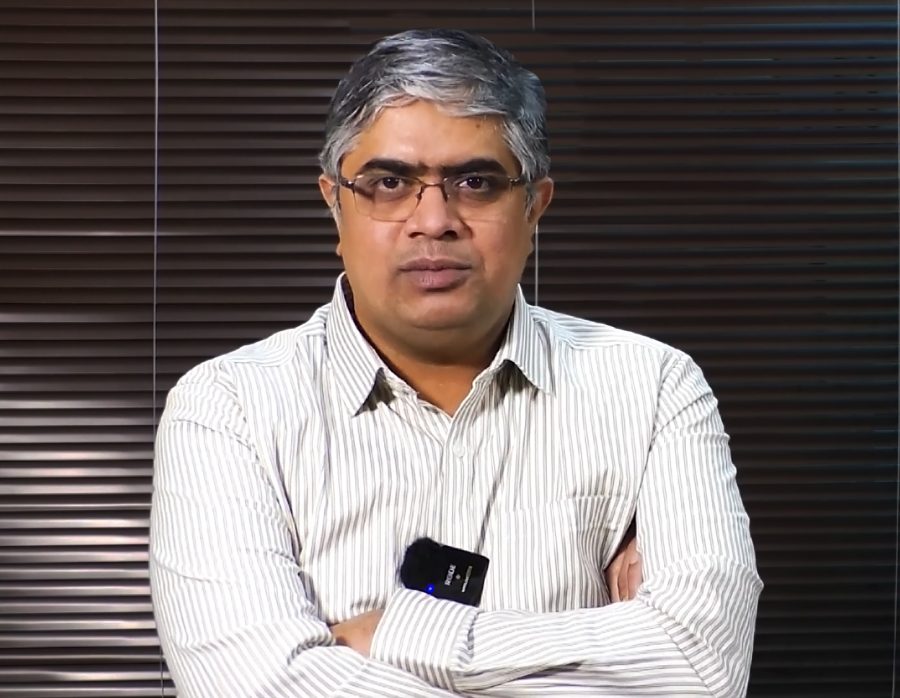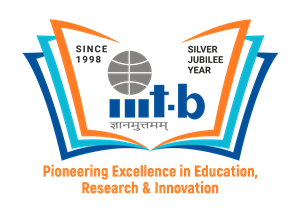
Quantum computing, is a whole new ball game when it comes to computers. We’re talking about a technology that uses the principles of quantum mechanics to perform mind-boggling computations. But quantum computing is still in its infancy. We’re making strides, no doubt about it, but we’re not quite ready to replace our trusty laptops just yet. It’s going to take some time to make quantum computers practical and affordable for everyday use. In this article, Prof. Shiva Kumar Malapaka, IIIT-Bangalore takes us into this article and talks about quantum computing.
Quantum Computing is one of the most important emerging tech area that the entire world is betting on, with billions of Dollars being invested all across the globe. This area originates from the inherent probabilistic nature of Quantum mechanics, where a physical property of a particle remains in the realm of probability with infinite possibilities until it is measured. Once measured it will result in one definite outcome (of the infinite possibilities).
This basic feature of Quantum mechanics, enables one to transmit more amount of information per unit time than that can be done in the classical computing case. The basic working unit of in classical computing; as we all know; is a ‘bit’, similarly in quantum computing it is a ‘qubit’. Classical computing is done at room temperature or higher on integrated chips, however, in the present day, quantum computing is conducted at sub-zero cryogenic temperatures, using different techniques. Efforts are on to create room-temperature quantum computing.
The popular belief that quantum computing will take over all current-day classical computing is incorrect. Quantum computing, however, will be very useful solving in complex problems that the current-day classic computers take a very large amount of time like protein folding and drug discovery in biology, weather predictions in meteorology, greatly improved and fast search and sort operations, cryptography and complex problems like supply chain management and modelling multiple atom chemistry. It is believed that there will be Quantum accelerators in addition to GPUs along with CPUs in future computers that will improve the high-performance computing.
Quantum Computing consists of several components starting from techniques to create Qubits using a physical process called Quantum Entanglement (which can be achieved through several ways), transmitting the created qubits and performing quantum communication using quantum teleportation, creating large-scale quantum networks to move towards quantum internet and ensuring data safety on these quantum networks using quantum cryptography. Quantum sensors and quantum simulations are also two other areas that are developing rapidly.
Many of the areas mentioned above are maturing slowly. Currently, lab-based quantum computers are operational. They use various technologies for generating the qubits, like Superconduction, Trapped ions, Photonic methods, Silicon-based methods and Topological methods. Each of these methods sustain the entanglement of the qubits from times ranging from 50 microseconds to few seconds. It is expected that in about a decade or two commercial quantum computers may become available in the market.
In the transmission of the qubits, the main disadvantage is the decoherence time they experience while interacting with the environment. The quantum memories and quantum repeaters are the crucial components that are needed to improve the quantum communications and pass information over the quantum networks.
Data safety is more mature in quantum domain as one can easily and definitely identify if any eves-dropper had accessed the data when two nodes are communicating. However, the ideas of Quantum Key Distribution, which is the bedrock of quantum cryptography, are now helping improve existing cryptographic algorithms in finance and defense and many other areas.
Whole world is waking up to the potential applications and uses of quantum computing and is investing in this area. Europe, Canada and US were the first ones to invest in this research area. However, now, China is the largest investor in quantum computing. India has recently started a National Quantum mission, which envisages to contribute in all the areas of quantum computing mentioned above, with a budget of about RS. 6000 Crores for the next 8 years.
This mission is expected to help many academic & research institutes, Universities, MSMEs and other industries move towards the cutting edge research and take a giant leap forward and move towards creating highly technical human resources and first rate assets that are second to none in the world.
The economic implications of quantum computing would be felt in areas like health care, defence, education, metrology and entertainment to name a few. Health care will benefit immensely as quantum computers will help in drug discovery and treatments for some of the currently incurable diseases that might be possible. Further quantum sensors may help diagnose many diseases in the earlier stages. Defence systems will become very accurate in targeting the enemy as quantum sensors will enable the same. The same sensors might also help us improve weather predictions. Education and Entertainment will gain from the massive data that could be made available to the public through the quantum networks. Some of the core computer science problems which are usually described as np-hard problems might also be solved using quantum computing.
However, in the present day, companies like IBM, Google and Amazon are offering first/ second generation quantum computers which are being used in areas such as Machine learning, AI and cryptography. These efforts are already showing promising results, which are raising hopes for a potentially bright future with quantum computing.
The biggest milestone in quantum computing that everyone is waiting for is the room temperature quantum computers. Once they are operational in labs and increase the lifetime of the qubits for longer time scales, only then the commercial quantum computers will become a reality. Quantum memories, quantum repeaters and other network-related instrumentation will then become feasible and drive us towards the next generation of quantum computing.
Workshop at IIIT-B to Bridge the Gap for Beginners and Experts in Quantum Computing
IIITB COMET Foundation organised a one-day Hybrid workshop in May 2023 to explore the possibilities in Quantum computing titled ‘Various Aspects of Quantum Computing’. This workshop started with a basic and overall introduction to various areas of quantum computing. The talks in the workshop highlighted on:
- Generation of qubits using cold atom technology
- Introduction to quantum information science and few of its applications
- Application of quantum algorithms for image processing under low light conditions using Quantum Neural Networks
- Industry perspective on quantum computing
- Application of quantum algorithms to resource management in cloud computing
- Proactive entanglement setup in quantum networks
- Attempts at generating qubits using adiabatic methods.
 –Prof. Shiva Kumar Malapaka
–Prof. Shiva Kumar Malapaka
IIIT-Bangalore


